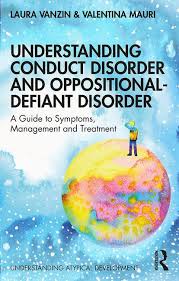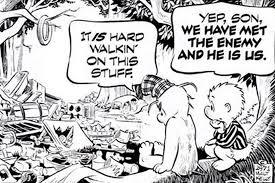If snowplow parenting only increased the likelihood that your kid would morph into a sniveling, entitled, feckless, unhappy monster living in your basement borrowing your credit card, I wouldn’t spill any more electrons trying to help you raise a responsible kid who understands that his actions have consequences for him. Your kid has been repeatedly rescued and enabled? Your kid whines and gets whatever she wants? Your kid can’t do anything on her own because you have always done everything for her? Sure, that’s a shame. But you made your own tragedy, now lie in it. What does your spoiled child have to with me and mine?

The problem is that your promise to only pee on your side of the Jacuzzi or smoke cigarettes on your side of the car is suspect. Your bad parenting is harassing good teachers. Terrorizing competent professionals affects all the other kids in their care. You are doing homework for your child. You are creating science fair projects that your child doesn’t understand. You are penning college admission essays. You are cornering the teacher to discuss marks on homework—for your third grader. As a result of your incessant bombardment, good teachers are quitting. Compassionate, experienced, well-trained teachers are leaving the schools—public and private—in droves. These defections are a problem for those of us who are left behind.

Good teachers are harassed to the point of snapping. These competent professionals are going online to Spain and France, to Brazil and Columbia, soon to China and India. The technology is easy. Skype and Zoom create virtual classrooms. “Professional on top, party on the bottom.” They don’t have to get dressed up and they don’t have to worry about being cornered and annoyed by your overreaching concerns and anxiety.
By working from home, these teachers are saving money on gasoline and nylons. They avoid commuting time, proctoring exams, and parking lot duty. They can go to work in pajama bottoms. But what they’re happiest about is obviating endless, tedious conversations with you about what grade Percival got on his arithmetic worksheet. In the fourth grade.

Here is an amalgam of sentiments of teachers who are no longer in the classroom: “I loved my students, I respected my colleagues, I could even handle the administration. But the parents were unbearable.”
“I took college courses about the cognitive, social, and emotional needs of children. I studied curriculum and mastered classroom management. I learned about cognitive and psychological development in graduate school; I still attend conferences and read journal articles about how to teach dividing fractions and love of literature. But nobody ever taught me how to outrun a parent screaming across the parking lot about how a grade on her child’s homework was unfair and how she is going to devote her life to getting me fired for being insensitive and mean.”

“The parents of the international students, on the other hand, are supportive. These parents know the teachers are doing the best they can to teach language, history, and culture. The students are a pleasure and the parents are grateful.”
“But I don’t have to deal with any of them, not in a meaningful way. I am completely disengaged. These children live in another country. I have no involvement with the emotional lives, no connection in their communities. I have never met their siblings. It’s not like I’m going to see them and their families at the bake sale after school. We can’t have a bake sale. The school exists only as a hypothetical construct that we all agree on. There are courses, curriculum, homework, and tests but there is no longer any there here. There are no hugs; there is no tousled hair; I am certainly never going to bandage a skinned knee after recess or give a child a ride home on a rainy day.”

”That’s what I miss about the brick and mortar classroom, the opportunity to make a transformative, positive impact on the lives of my students. That was before the snow plow, over-involved, hysterical-piranha parents drove me into this welcoming virtual world.”
Teachers can’t teach how they want, share their passion, take a step away from the curriculum because you will be on them in your incessant, unthinking way. “Why do they need to know that?” you will ask about an interesting, extra credit problem. “How will that help them in life?” you will inquire if I try to reference a subject about which I am passionate. Asking for justifications and rationalizations will discourage teachers from being anything but automatons—vending machines in front of the classroom.
To paraphrase Walt Kelly parodying Oliver Hazzard Perry, “We have met the enemy and he is you.” Until you can relax and allow your child to be the student, I am going to remain here in virtual world. I’m not making as much of a difference as I did when I was in a real classroom; but at least I don’t have to deal with your screaming anxiety and meanness.

Public schools had been called the backbone of our democracy. You have made it worse for everyone–your kids, my kids, and good teachers. You have harmed a system that world wars couldn’t touch. Who is going to be left in the classroom? Who is going to deal with your “my child is on board, now pull up the rope” mentality? Your over-involvement and out-of-control impatience and consternation aren’t just part of the problem.
If you will let your child be a child, if you will let teachers be teachers, if you will fulfill your responsibilities as a parent, I might come back to the classroom that I loved, where I made a difference. But in the meantime, I’m going to stay here in my comfortable, impersonal, virtual world.
Shame on you.


